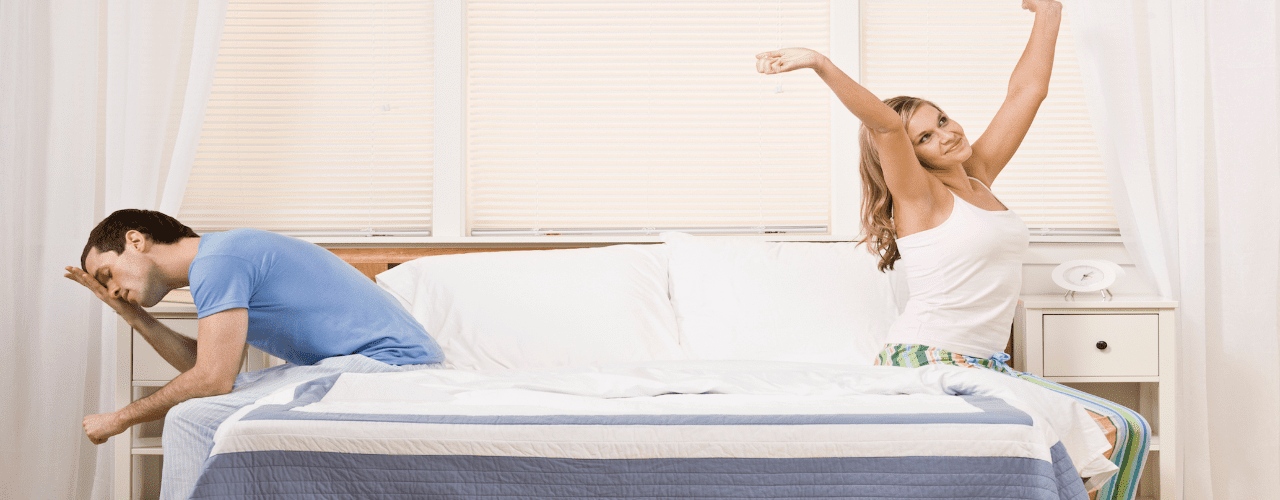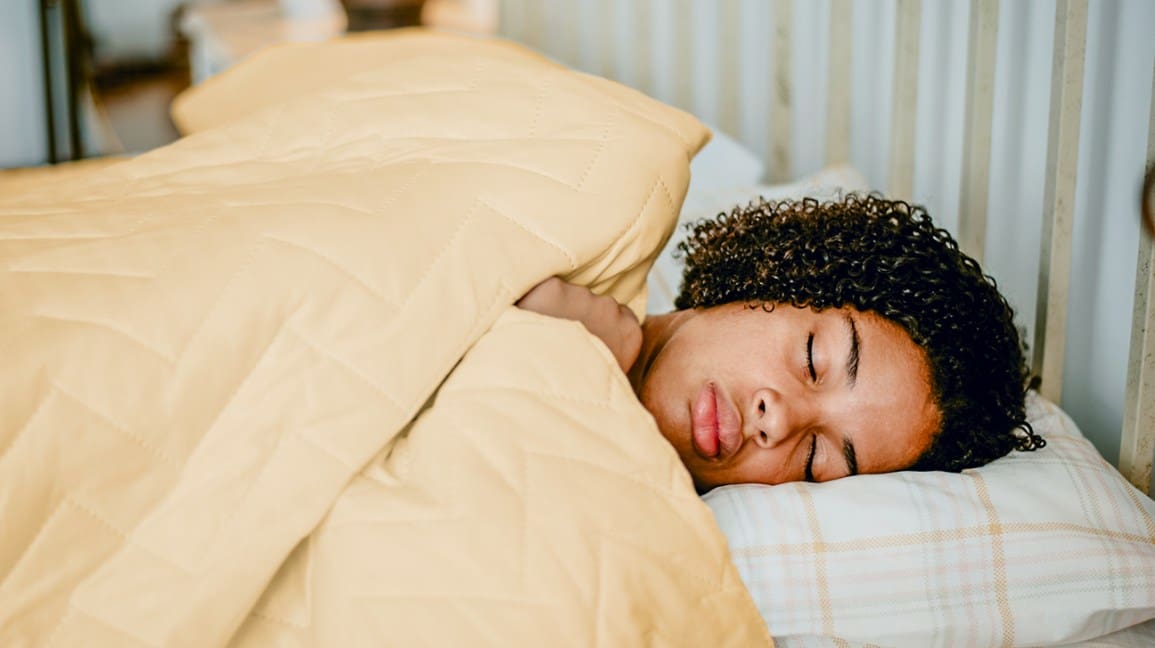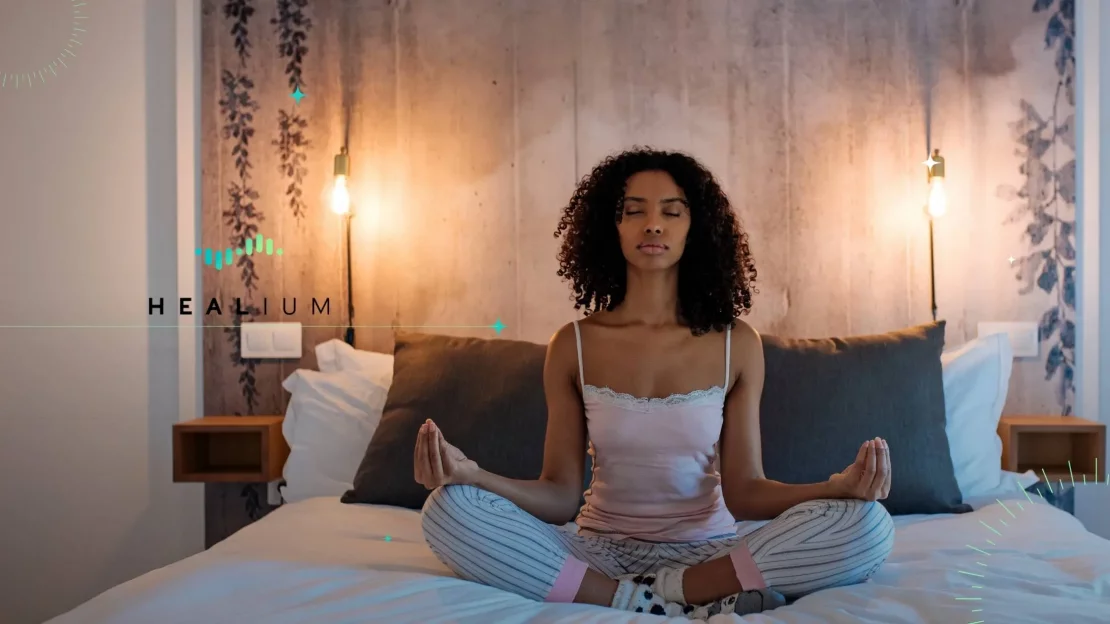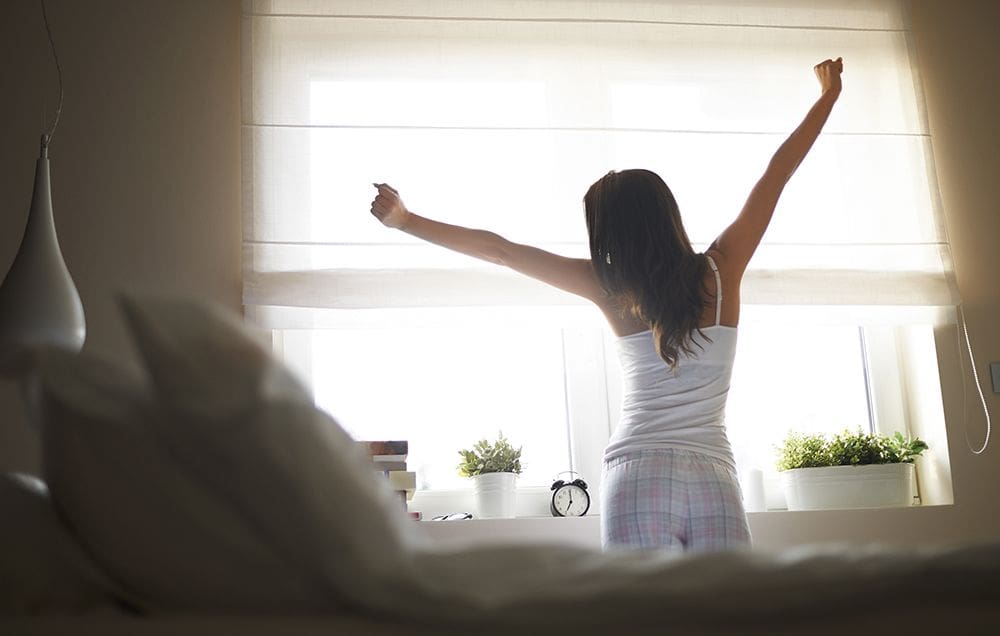Health
7 Proactive Steps to Perfect Your Sleep Environment


Creating the ideal sleep environment is essential for achieving restful and rejuvenating sleep. Many of us struggle to attain quality sleep due to factors within our control, such as our sleep environment.
By taking proactive steps to optimize this environment, you can significantly improve your sleep quality and overall well-being. From simple adjustments to more deliberate practices, there are numerous strategies to explore.
Each of these steps aims not only to improve the physical space where you sleep but also to enhance the mental and emotional aspects that contribute to a peaceful night’s rest.
Key Takeaways
- Declutter your bedroom and keep only essential items by your bedside for a peaceful sleep environment.
- Choose calming colors for walls and bedding to create a soothing atmosphere.
- Incorporate sleep-inducing teas like chamomile, valerian root, lavender, or passionflower into your nightly routine for relaxation.
- Utilize white noise to mask disruptive sounds and promote relaxation before bed.
Optimize Your Sleep Environment
To optimize your sleep environment, it is crucial to create a space that promotes relaxation and supports restful sleep. Start by decluttering your bedroom, keeping only essential items by your bedside.
Choose calming colors for your walls and bedding to create a tranquil atmosphere. Consider using blackout curtains or an eye mask to block out any unwanted light. Additionally, introduce soothing sounds like white noise or nature sounds to drown out disruptive noises.


Keep the room cool, ideally between 60-67 degrees Fahrenheit, as a lower temperature promotes better sleep. Investing in a comfortable mattress and pillows that support your preferred sleeping position is also essential.
Furthermore, ensure good air circulation and consider using a humidifier if the air is dry. Finally, ban electronic devices from the bedroom to minimize distractions and exposure to blue light, which can interfere with your body’s natural sleep-wake cycle.
Incorporate Sleep-Inducing Teas
Incorporating sleep-inducing teas into your evening routine can be a beneficial way to promote relaxation and improve the quality of your sleep. Certain herbal teas have been used for centuries to help calm the mind and body, making them a natural and gentle aid for those seeking a restful night’s sleep.
Here are some tips to help you incorporate sleep-inducing teas into your bedtime routine:
- Choose the Right Tea: Opt for caffeine-free herbal teas such as chamomile, valerian root, lavender, or passionflower, known for their calming and sedative properties.
- Establish a Ritual: Create a calming pre-sleep ritual by brewing a warm cup of tea, allowing the aroma and warmth to signal to your body that it’s time to wind down.
- Mindful Consumption: Enjoy your tea mindfully, sipping it slowly and savoring the flavors, while engaging in relaxing activities like reading or gentle stretching.
- Consistency is Key: Incorporate sleep-inducing teas into your nightly routine consistently to signal to your body that it’s time to unwind and prepare for rest.
Utilize White Noise for Better Sleep
When it comes to creating an optimal sleep environment, utilizing white noise can play a crucial role.


White noise has been shown to help mask disruptive sounds and create a soothing, consistent background noise that promotes better sleep.
Choosing the right white noise source, whether it’s a machine, app, or a simple fan, can make a significant difference in the quality of your sleep.
White Noise Benefits
Utilizing white noise can significantly improve the quality of your sleep by creating a consistent and soothing background sound that masks other disruptive noises. White noise offers several benefits that can contribute to a better night’s sleep:
- Blocks Distractions: White noise helps block out sudden noises that may disrupt your sleep, such as traffic sounds or barking dogs.
- Enhances Privacy: By masking the sounds within and outside your sleeping environment, white noise can provide a sense of privacy and seclusion.
- Promotes Relaxation: The steady sound of white noise can have a calming effect, helping you relax and unwind before bed.
- Improves Focus: For those who work or study from home, white noise can aid concentration by minimizing background noise distractions.
Choosing White Noise
Consider selecting a white noise option that best suits your preferences and sleep environment to optimize its effectiveness in promoting better quality sleep.
When choosing white noise, prioritize options that align with your personal preferences. Whether it’s the sound of rain, ocean waves, or a simple fan noise, ensure that it brings a sense of calm and relaxation to your sleep environment.


Additionally, consider the volume and intensity of the white noise to ensure it effectively masks any disruptive sounds without being too overwhelming. Some white noise machines also offer customizable features, allowing you to adjust the tone and pitch to your liking.
Ultimately, the goal is to create a soothing and consistent background noise that promotes a sense of freedom from external disturbances, facilitating a more restful and undisturbed sleep experience.
White Noise Machines
To optimize the effectiveness of white noise in promoting better quality sleep, incorporating a white noise machine into your sleep environment can offer consistent and customizable background noise. White noise machines provide a range of benefits, including:
- Improved Sleep Quality: By masking disruptive sounds, white noise machines can create a more soothing environment for sleep.
- Customizable Options: Many white noise machines offer various sound options, allowing users to select the most calming and effective sound for their individual preferences.
- Portability: These machines are often compact and portable, making them suitable for use at home or while traveling.
- Enhanced Privacy: White noise can help mask conversations and other sounds, providing a greater sense of privacy and tranquility.
Practice Pre-Sleep Meditation
Creating a peaceful and tranquil mindset before bedtime can be achieved through the practice of pre-sleep meditation. Engaging in meditation allows individuals to release the stresses and worries of the day, promoting a sense of calm and relaxation that is conducive to a restful night’s sleep. This practice provides an opportunity to declutter the mind, letting go of any lingering anxieties and mental clutter that may interfere with falling asleep easily. By incorporating pre-sleep meditation into your nightly routine, you can create a sense of freedom from the demands and pressures of daily life, allowing for a more restorative and rejuvenating sleep experience.
Pre-sleep meditation empowers individuals to take control of their mental state, fostering a sense of freedom from the chaos of the outside world. This practice encourages mindfulness and introspection, enabling individuals to let go of the day’s tensions and embrace a state of inner peace. By incorporating pre-sleep meditation, individuals can establish a sense of freedom within their minds, promoting a restful and undisturbed night’s sleep.


Explore Ideal Sleep Positions
After achieving a sense of inner peace through pre-sleep meditation, the next step in perfecting your sleep environment is to explore ideal sleep positions. Finding the right sleep position can significantly impact the quality of your sleep, leading to a more restful and rejuvenating experience.
Here are some ideal sleep positions to consider:
- Back sleeping: This position evenly distributes weight and can help reduce pressure points, making it beneficial for individuals with back pain.
- Side sleeping: Sleeping on your side can help alleviate snoring and sleep apnea symptoms, as well as reduce acid reflux discomfort.
- Fetal position: Curling up on your side with your knees drawn towards your chest can be comforting and may help reduce lower back pain.
- Elevated leg position: Elevating your legs slightly with a pillow can improve blood circulation and reduce swelling, making it ideal for individuals dealing with edema or varicose veins.
Exploring and finding the ideal sleep position that suits your body and preferences can bring a sense of freedom and comfort, ultimately contributing to a more peaceful and undisturbed sleep.
Consider Dietary Influences on Sleep
When it comes to optimizing your sleep environment, it’s important to consider the impact of your diet on the quality of your sleep.
The food you consume can have a significant influence on your ability to fall asleep and stay asleep throughout the night.


In particular, the timing of your meals, as well as the types of foods you eat, can play a crucial role in promoting restful sleep.
Food and Sleep
Understanding the impact of dietary choices on sleep quality is essential for creating an optimal sleep environment. The foods we consume can significantly affect our ability to fall asleep, stay asleep, and the overall quality of our sleep. Consider these dietary influences on sleep:
- Caffeine and alcohol: Limiting caffeine and alcohol intake, especially in the hours leading up to bedtime, can help improve sleep quality.
- Heavy or spicy meals: Eating heavy or spicy meals close to bedtime can lead to discomfort and disrupt sleep.
- Sugar and refined carbs: Consuming these foods in excess can cause blood sugar spikes and crashes, leading to sleep disturbances.
- Balanced evening snacks: Opt for light, balanced snacks like a small serving of nuts or a piece of fruit to promote better sleep.
Impact of Diet
The relationship between dietary choices and sleep quality is pivotal in cultivating an optimal sleep environment. Consuming a well-balanced diet can significantly impact the quality of sleep.
Foods rich in tryptophan, such as turkey, nuts, and seeds, promote the production of serotonin and melatonin, which are essential for regulating sleep. Conversely, consuming large meals, caffeine, or spicy foods close to bedtime can disrupt sleep patterns.
Additionally, excessive alcohol consumption may negatively affect the overall quality of sleep. It is important to be mindful of portion sizes and meal timing to support better sleep.


Maintaining a balanced and nutritious diet, while being conscious of the timing of food consumption, can contribute to improved sleep quality, providing individuals with the freedom to wake up feeling refreshed and rejuvenated.
Eating Before Bed
Consuming food close to bedtime can significantly impact the quality of sleep, as certain dietary choices can either promote or disrupt the body’s natural sleep patterns. When considering the impact of eating before bed on sleep, it’s important to keep in mind the following:
- Timing: Eating heavy or large meals too close to bedtime can lead to discomfort and indigestion, disrupting sleep.
- Food Choices: Certain foods, such as spicy or acidic foods, can cause heartburn and discomfort, affecting the ability to fall asleep and stay asleep.
- Alcohol and Caffeine: These substances can interfere with the body’s ability to enter deep, restorative sleep, leading to fragmented and disrupted sleep patterns.
- Hydration: Consuming excessive fluids before bed can lead to frequent awakenings for bathroom trips, impacting overall sleep quality.
Enhance Deep Sleep Quality
Creating an optimal sleep environment can significantly improve the depth and quality of your sleep. To enhance deep sleep quality, consider factors such as room darkness, noise levels, and temperature. Investing in blackout curtains or an eye mask can help eliminate light disturbances, signaling to your body that it’s time to rest deeply. Additionally, using earplugs or a white noise machine can minimize disruptive sounds, allowing for more uninterrupted, deep sleep cycles. Maintaining a cool, comfortable room temperature, typically between 60-67 degrees Fahrenheit (15-19 degrees Celsius), can also promote deep sleep.
Another way to enhance deep sleep quality is to invest in a comfortable mattress and pillows that provide proper support for your body. This reduces the likelihood of waking up due to discomfort and enables you to remain in deep sleep stages for longer periods. Creating a relaxing bedtime routine, such as reading or practicing deep breathing exercises, can also signal to your body that it’s time for deep, restorative sleep.
Frequently Asked Questions
How Can I Create a Sleep-Friendly Environment for My Pet in the Bedroom?
Creating a sleep-friendly environment for your pet in the bedroom involves providing a comfortable bed, controlling noise and light, and maintaining a consistent bedtime routine. Consider their comfort, minimizing disruptions, and setting a peaceful ambiance.


Are There Any Specific Teas That Should Be Avoided Before Bedtime?
Yes, specific teas, such as black, green, and white tea, contain caffeine and should be avoided before bedtime as they can disrupt sleep. Herbal teas like chamomile, lavender, and valerian root are better options for promoting relaxation.
Can White Noise Negatively Impact Sleep for Some People?
Yes, white noise can negatively impact sleep for some individuals. While it can mask disruptive sounds, it may also interfere with the brain’s ability to enter deep sleep stages. Personal preferences and sensitivities vary.
How Can I Incorporate Meditation Into My Bedtime Routine if I Have Trouble Relaxing?
Incorporating meditation into your bedtime routine can promote relaxation and improve sleep quality. Start by setting aside a few minutes for deep breathing or guided meditation. Gradually increase the duration as you become more comfortable with the practice.
Are There Any Dietary Supplements That Can Improve Deep Sleep Quality?
Yes, certain dietary supplements like melatonin, magnesium, and valerian root have been shown to improve deep sleep quality. However, it’s important to consult with a healthcare professional before incorporating any new supplements into your routine.


Hi, I’m Kyle Rivera, a news journalist and blog editor with the Daily Evening News. A TCU alum with a flair for storytelling, I spend my days uncovering impactful stories and my evenings exploring the realms of yoga, cycling, and whimsically bad poetry.
Travel is my escape; I’ve trekked from Tokyo’s neon lights to Iceland’s tranquil vistas. But no journey is complete without Mogli, my Golden Retriever, who’s redefining his breed standards in the most charming ways.
I love connecting with fellow travelers, yogis, cyclists, and anyone who enjoys a laugh at my poetic attempts. If you’re into stories that inspire, travel escapades, or just want to see what Mogli and I are up to, I’d love to hear from you on Instagram or Facebook. Let’s share tales and tips from around the globe!

